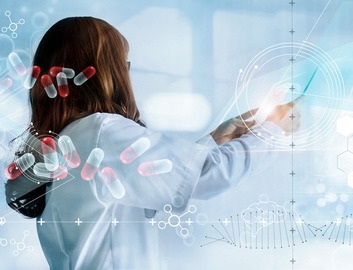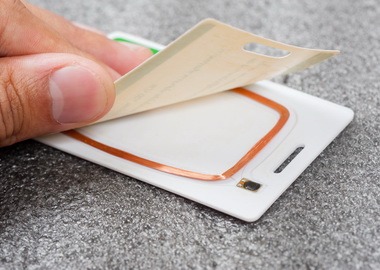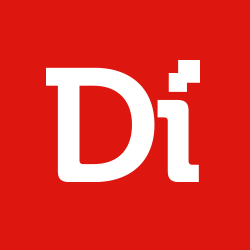Benefits of Using Internet of Things (IoT) in the Healthcare Industry
Healthcare is one of the most important industries, but due to the complexity, level of responsibility and strict regulations, innovations have to come a long way before they get fully adopted in this domain. However, things have changed since the pandemic has shown the vulnerabilities and inefficiencies in this sector. Internet of Things could be the technology that will help us solve these and other problems in healthcare.
The use of Internet of Things (IoT) in healthcare has vast opportunities — better and more accessible telemedicine, remote condition and treatment monitoring, control over medication adherence, etc. But IoT implementation in healthcare is moving slowly.
What is IoT in healthcare and how it impacts the industry? Globally, more than 60% of medical organizations worldwide are already implementing or looking into IoT solutions in healthcare. In the upcoming years, the number of patients and professionals in healthcare using IoT-connected devices for health monitoring is expected to grow significantly.
The Internet of Things in healthcare can be a solution to a number of problems that have accompanied this industry throughout history — low medication adherence rate, lack of tools for treatment control and off-clinic patient monitoring, underserving and shortage of skilled professionals to name a few.
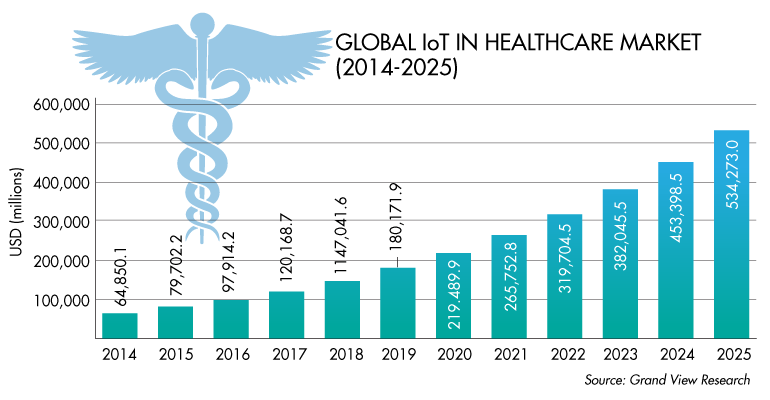
Applications of IoT in medical and healthcare are abundant and involve a wide range of technologies, from futuristic robots and drones to ML-based data analytics and predictive modeling.
Some of the boosters of the medical tech development from the first days of quarantine, for instance, were the growing maturity of UAVs (unmanned aerial vehicles), high demand for telemedicine mobile tools and remote patient tracking technologies, and the increasing role of IoT in healthcare recognized by governments and investors. UAV technologies in the medical supply chain are already getting ubiquitous. Drones are being used to deliver medicines to patients for home treatment. In Rwanda, for example, drones are even used to transport donor blood.
There are many proven benefits of using RFID technology in IoT solutions for healthcare. This is why the development of IoT healthcare solutions comes hand-in-hand with the growing integration of RFID technologies in this niche. This technology paired with other Internet of Things solutions for healthcare is already used in a number of areas, including inventory management in medical institutions as well as patient monitoring and in-hospital tracking.
Other cutting-edge opportunities are:
- Telemedicine. Medical Internet of Things paired with mobile apps introduces a whole new model of connectivity and communication between patients and doctors.
- RFID for patient monitoring. RFID tags and labels have very broad applicability from people tracking to sanitation control.
- Wearable devices transmit data directly to doctors. Most often we will be talking about watches, bands, bracelets and other trackers that collect important information about the patient condition (heart rate, blood pressure, pulse, blood sugar, etc.) and send it to hospitals or directly to doctors for analysis and treatment correction.
- Diagnosis, preventive medicine. Patient records, test results, treatment progress and other data that can be collected using IoT are important to improve diagnostic accuracy and drive the development of preventive medicine.
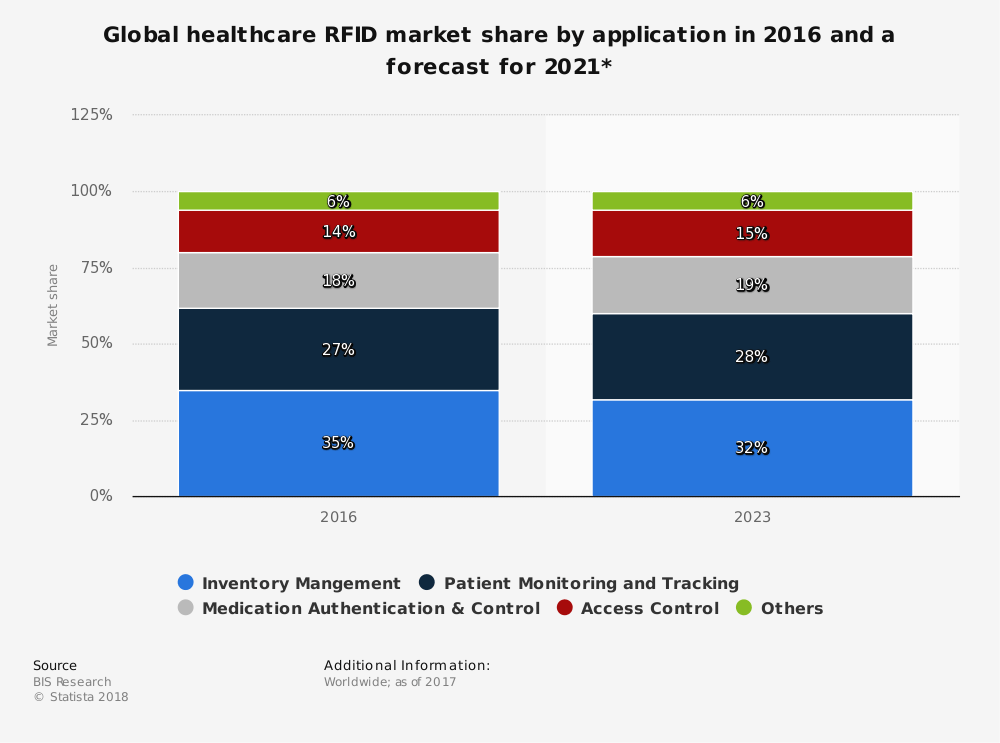
The healthcare industry has always experienced a number of problems that are still not being solved. For example:
- Low patient engagement and medication adherence. Often, patients simply ignore the requirements of a specialist, using folk remedies or “a drug that is advised by friends.” Using IoT healthcare solutions that allow remote tracking of medication adherence and patient engagement, doctors get better control over the treatment process.
- Slow treatment process and delays in hospital discharges. Even on normal days, hospitals often do not have sufficient staff power to service all the patients that are coming in. Pandemic only escalated this problem in times and showed the weaknesses in existing healthcare processes. Add to that a lack of qualified specialists, low number of well-equipped rooms, etc. Integrating Internet of Things to healthcare industry, we can significantly speed up and simplify the process of providing assistance. Connected technology can help monitor patient admission, optimize workflows, predict the influx of patients during an epidemic period, etc.
- Underfunding and misplacement of resources. Modern medicine is very resource-intensive, and it is not always possible to meet all the requirements. This is especially true for Asian, African, and Latin American countries. IoT will significantly reduce the cost of maintenance of premises, personnel, transport, and more.
The sooner medical facilities start integrating IoT, the more opportunities there will be for business development in the long term.
However, bringing IoT in healthcare market is not that easy. The main difficulties are related to the insufficient privacy regulations as well as the use of outdated infrastructure. It is also worth noting that the cost of implementing IoT is quite high, and many applications are still experimental. At the same time, investments in the Internet of Things in healthcare can bring returns quickly if well-calculated.
Contact Digiteum
The variety of uses of IoT in healthcare doesn’t limit with smartwatches or bracelets that monitor our heart rate. There are plenty of hardware and software startups that do their best to provide high-end solutions for current healthcare problems and leverage the benefits of Internet of Things in healthcare applications.
Cardiomo
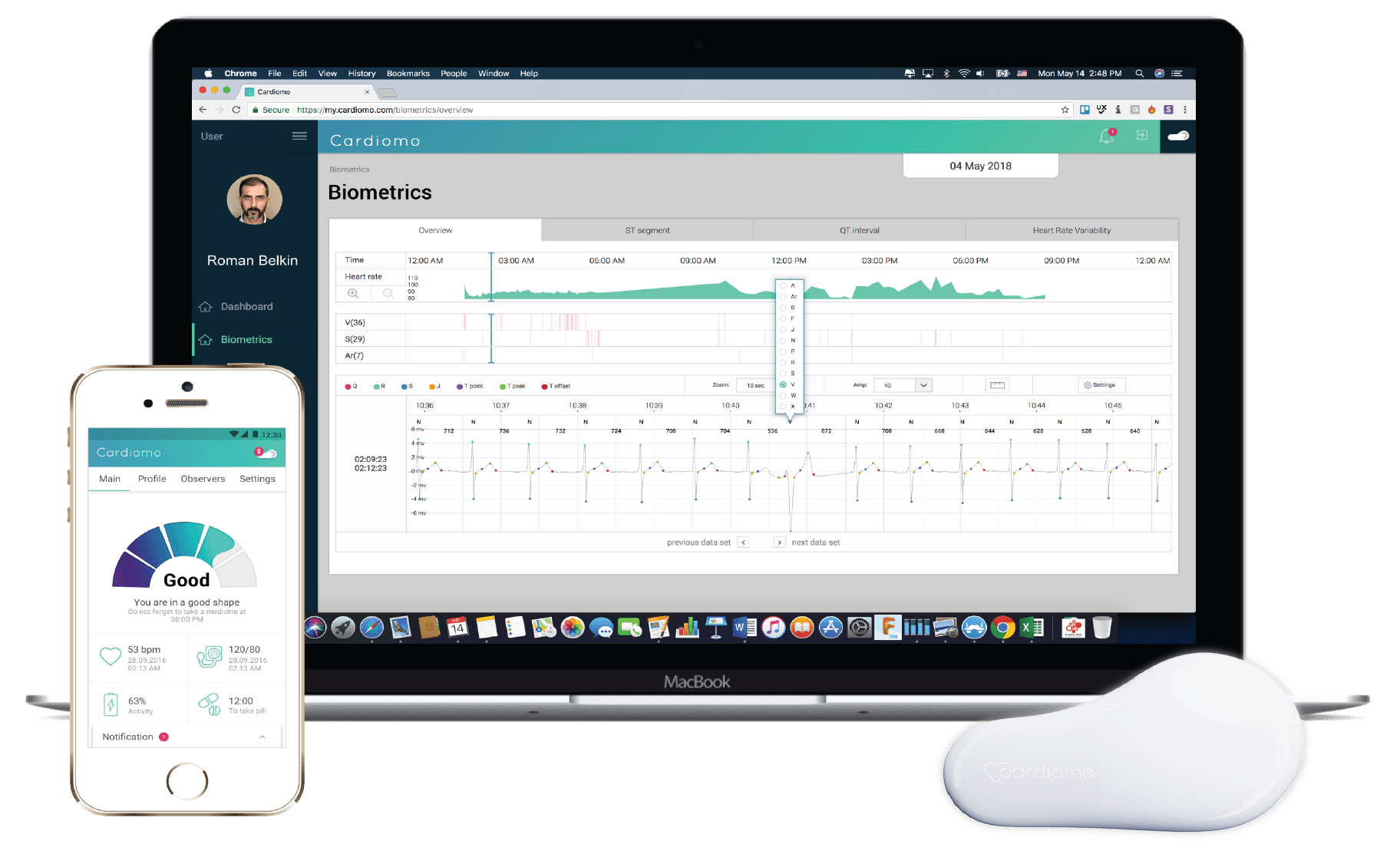
Cardiomo is a device designed by an IoT product development company to monitor full-body health conditions. It is a wearable device with sensors that track basic biometric parameters such as body temperature, pulse, blood pressure, etc. It is paired with a companion mobile application that provides visibility and analytics tools.
The developers position Cardiomo as a product for monitoring the status of elderly patients. However, this device can be used at any age. It has ISO certification and is being used in an ongoing study of post-Covid cardiovascular conditions.
Elvie Pump
Elvie Pump is a device for new mothers. It is an innovative breast pump that works absolutely silently and automates breast pumping. The idea was to develop a device that doesn’t require any physical effort. Elvie Pump has become just that.
The breast pump is light, portable and very compact. It is connected to the free Elvie Pump app to monitor milk volume, browse pumping history, and control the pump remotely.
Smart Hospital
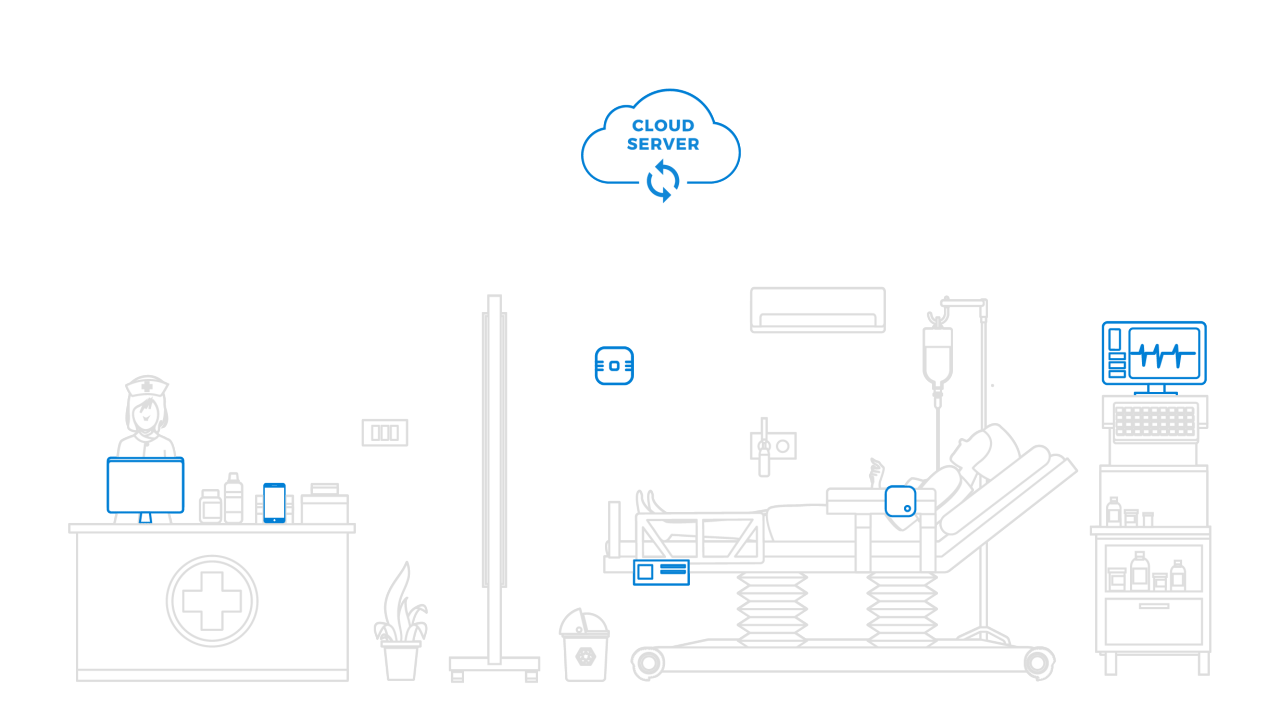
Smart Hospital by Z-works is a full-fledged virtual hospital solution. Japanese startup created a holistic IoT system that collects a complex of data across hospital room and patient condition, including patient body temperature, motion in the room, etc. In addition, Smart Hospital allows to correct and adjust treatment approach depending on the information obtained from the analysis of biometric parameters: heart rate, breathing rate, body temperature, etc.
Case study: Medical video recorder software development
Aira
The problems that blind and visually impaired people commonly face have always been very acute. The startup Aira offers a solution. The company collaborates with Google Glass and is developing an audio extension for people with special needs. The goal is to provide visually impaired people with important location data on the go and help them move around the city.
To run Aira, you need to touch the glasses sensor three times, which in turn will call an assistant – a member of Aira support team.
After touching it three times, this assistant receives the picture and all the information about the wearer: the history of their illness, their current location, contacts of people who need to be contacted immediately in case of an emergency, etc.
Contact Digiteum
Amiko
Amiko wants to help all people who suffer from lung disease. To do this, the company has developed a smart respirator. This smart device collects information about a person’s breathing, analyze it, and send it to the doctor.
The information obtained via the Amiko device allows doctors to monitor the current state of their patients and correct treatment strategies, depending on the incoming data. A wide range of settings allows customizing the device for each patient. The attending physician can monitor the patient’s condition daily, which reduces the number of personal visits to the medical institution.
RapidSOS
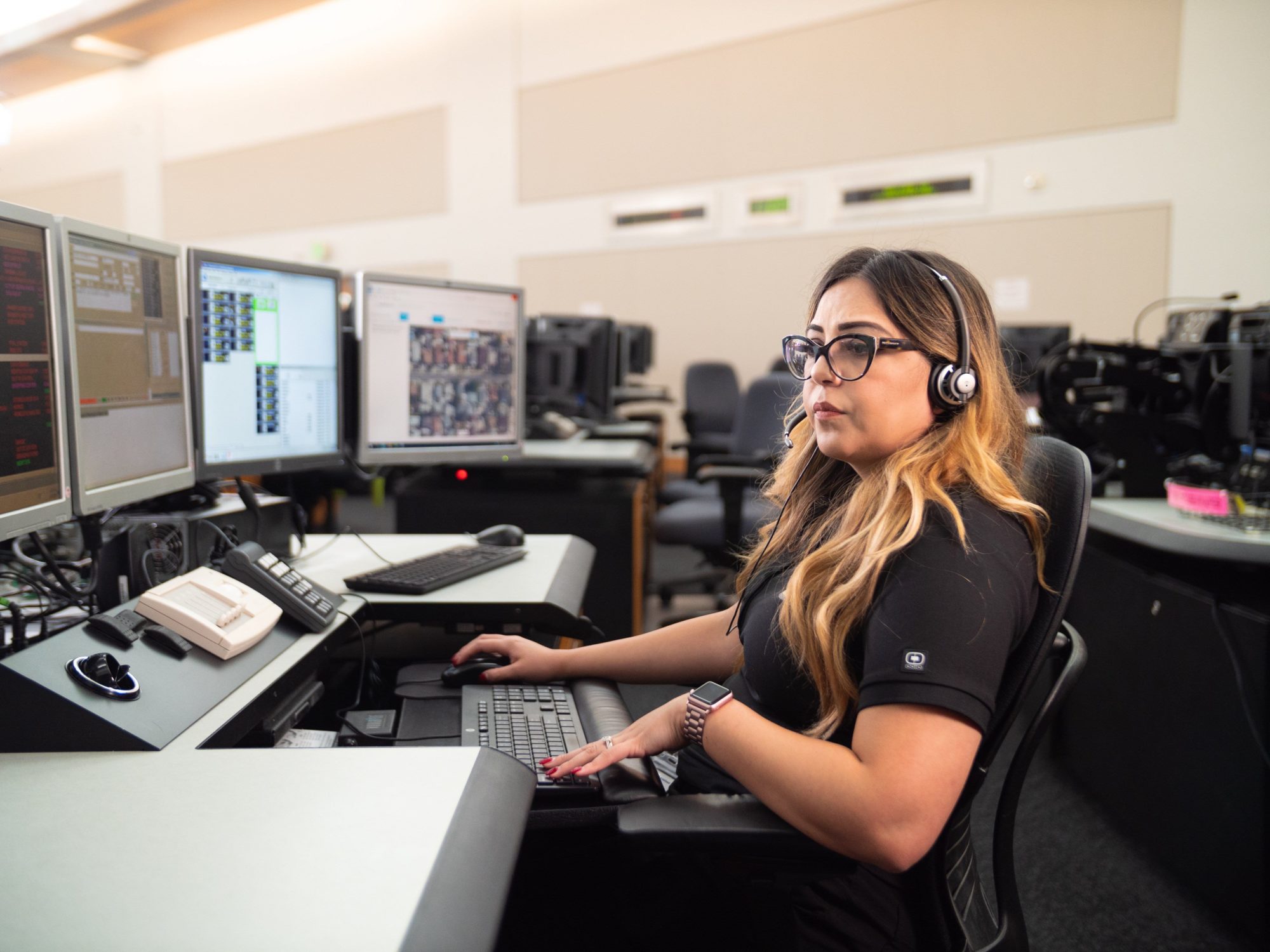
Normally, when you call 911, you need to spend time explaining your location, name, etc. Often there is simply no time for that. RapidSOS can help. It is a mobile application that contains all the necessary information – health-profile, live incident data, etc. Emergency API Suite from RapidSOS can turn a device or an app into a lifesaver. It can be connected to wearables, smart home security systems, and even cars.
Thanks to this app, when an emergency service receives your call, the operator immediately sees all the key data: the name of the patient or the victim, their location, blood group, etc. Thus, the ambulance team will be prepared with everything you need when they arrive.
Thync
Psychiatry is one of the most difficult areas of medicine, and it is still developing. Therefore, the treatment of a number of diseases in which the nervous system is excessively excited or conversely, depressed, remains extremely difficult. The way out of the situation could come from Thync – a hardware startup that offers to manage and improve the mood.
Thync consists of two wireless devices. The first one is Calm, which helps to relieve stress. The second one is Energy, which helps a person to “recharge.” The principle is based on sending weak impulses to the brain that affect the mood and make corrections based on the current problem a person has — extreme excitement or depression and apathy.
There are many advantages of combining IoT and healthcare. However, some benefits of IoT in healthcare outrun the application of connected technology in other domains because of their value. For example:
IoT enhances the capabilities of preventive medicine
Using IoT data, we can better understand what condition the patient is in and respond accordingly. The collected information allows doctors to notice the changes and directly address any issues without waiting for symptoms to become obvious. For these purposes, combining AI technologies for data analytics with vast IoT data works great.
Increased mobility and alert of hospital staff
This is one of the biggest IoT benefits in healthcare that can make a difference for the staff on the frontline. In times of pandemic, more and more patients need urgent help. Today, nurses or doctors work beyond their capabilities. They need tools to help them keep track of dozens and even hundreds of patients in real-time. With IoT tracking systems, they can get alerted immediately when critical changes in patients’ parameters occur, quickly locate patients who need help and direct assistance asap.
Read: Benefits of healthcare connected devices development
Accelerated processing of patient data
Normally doctors spend hours processing different kinds of information. With IoT, it will take a few minutes. In addition, the Internet of Things, combined with AI and ML, can offer possible treatment options.
Better management of drugs and medicine adherence
Using medical apps for doctors, healthcare professionals can remotely find out whether the patient has taken drugs, and if not, the therapist can call and remind a patient about that or, even further — this whole process can be automated.
Reduced risk of error and miscalculation due to the human factor
Sometimes tests mix up, or the doctor may make a wrong measurement or incorrect conclusion. The human factor in medicine can lead to serious consequences. With IoT, this is largely avoided with checks and balances. Machine intelligence combined with human experience improves diagnostic accuracy.
The future of IoT in healthcare is promising in view of recent events. The unfolding crisis in the industry caused by the pandemic once again proved the importance of implementing technologies like IoT, big data and AI to enhance efficiency and improve safety in healthcare. Implementing IoT solutions right now is no longer about staying ahead of the competition, it’s about making sure we can handle the crisis.
We at Digiteum help companies leverage IoT in healthcare industry and develop software to understand data, bring devices online and control smart systems. Our teams provide custom healthcare software development services for healthcare professionals, hospitals, foundations and pharma companies. We have a rich portfolio in this niche, including telehealth applications, diagnostic data analytics systems, EHR management systems, pharma apps, embedded software for smart medical devices, and many more.
Contact us to learn more and see if our skill set and experience are what you are looking for on your project.
Contact Digiteum
